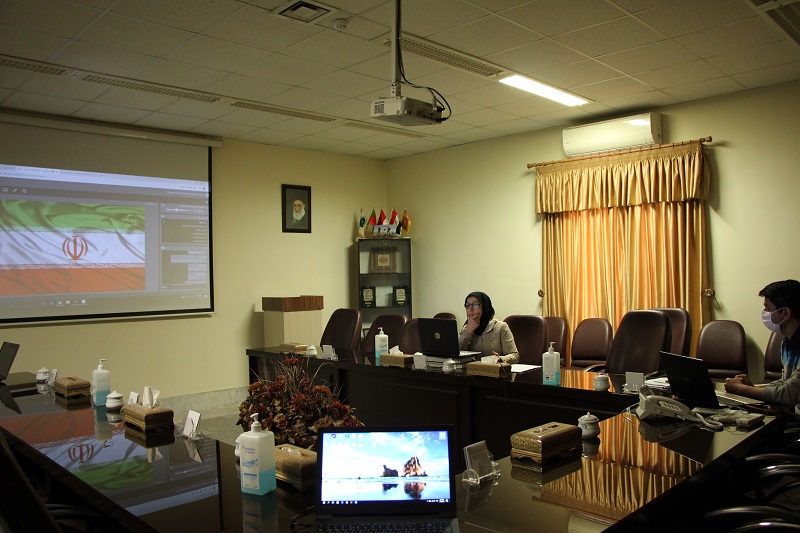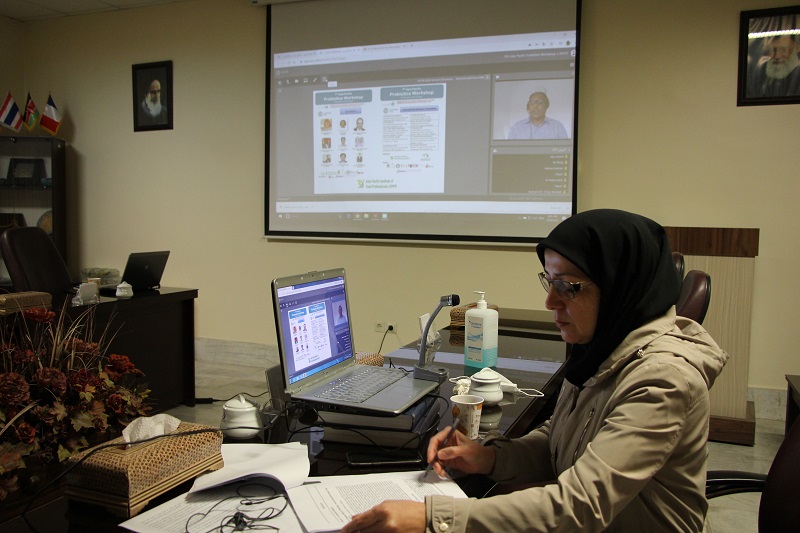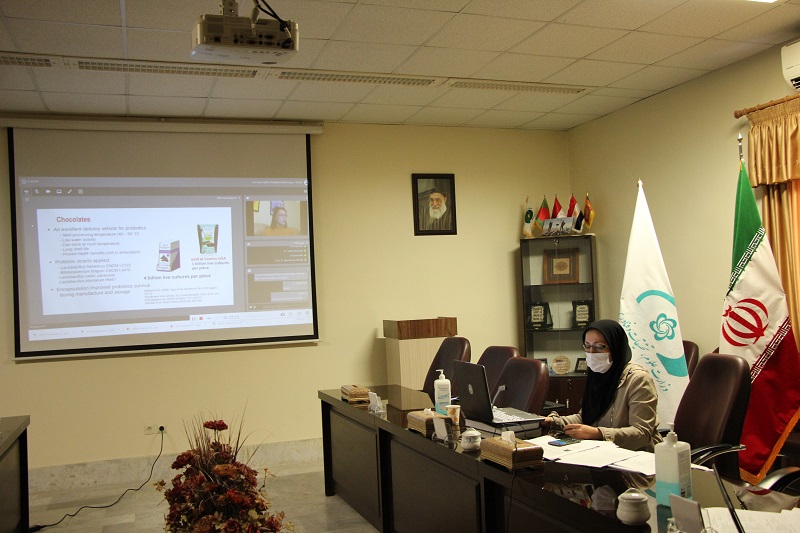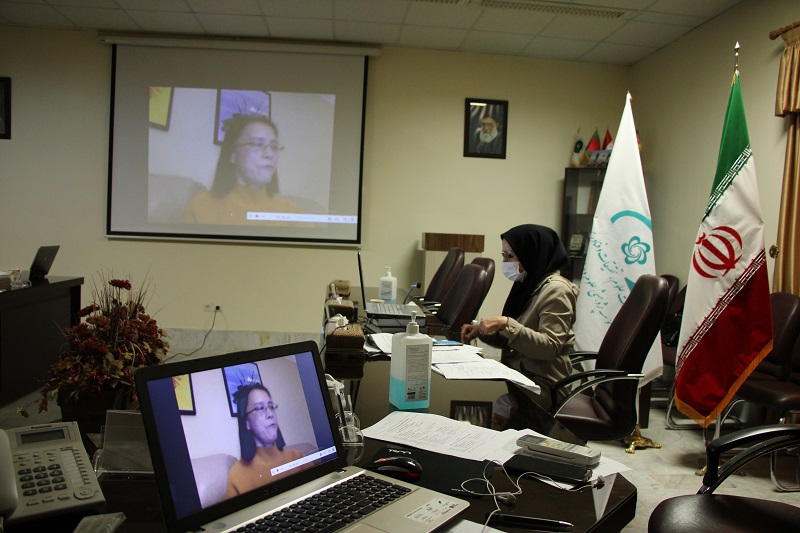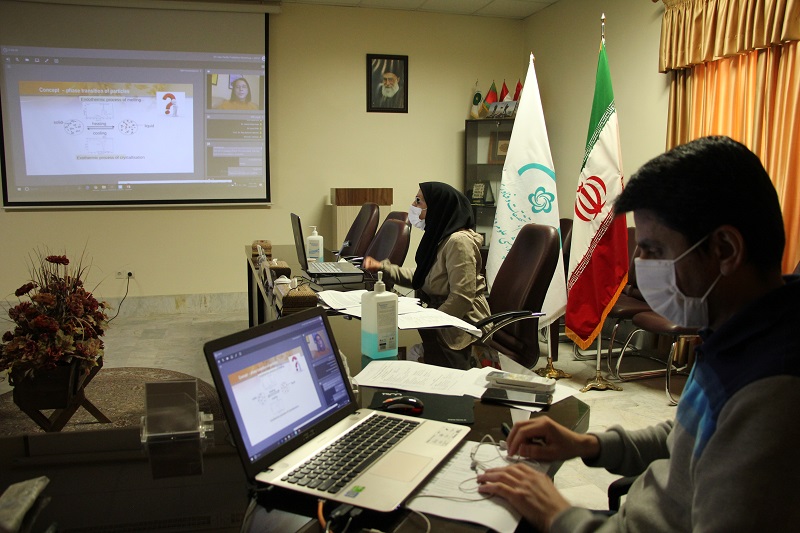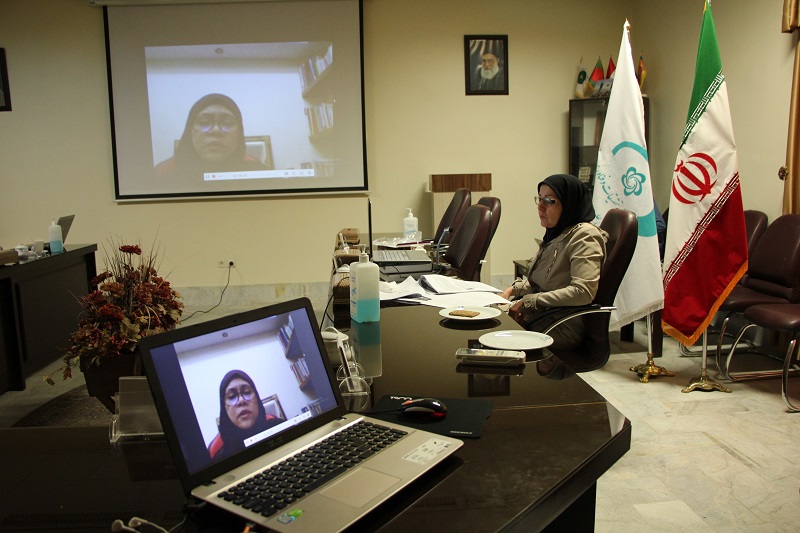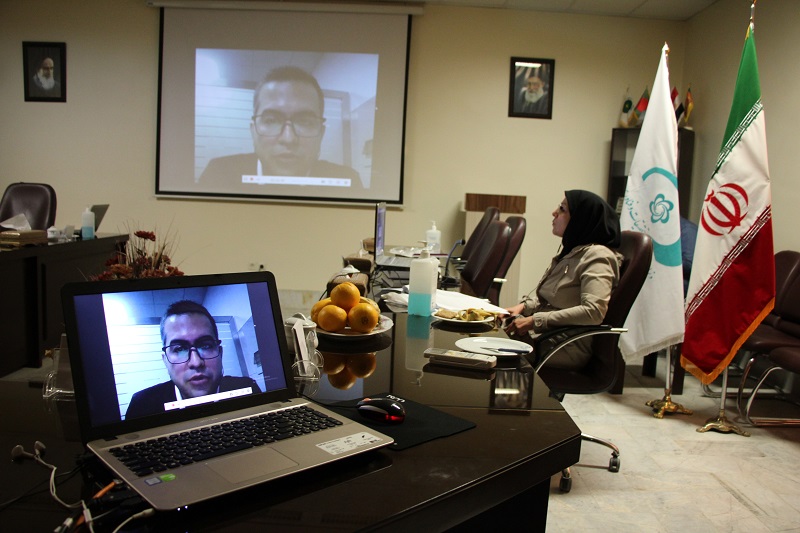At the 7th Asia-Pacific Probiotics Workshop, bio-food sciences and experts emphasized the growing role of probiotics in the health, industry and trade of the world.
At the beginning of the workshop, jointly and virtually conducted by RIFST and Asia-Pacific Institute of Food Professionals (APIFP), with the participation of nearly 100 experts from 16 countries, Associate Prof. Marzieh Hosseininezhad, Director of RIFST's International Scientific Cooperation and the Chairperson of the event, while welcoming the participants, offered a brief history of this series of meetings and added that "This workshop is the seventh in a series of specialized meetings on probiotics. It has been held in New Zealand, China, Iran, Vietnam, Malaysia and Thailand in recent years, and RIFST is hosting this Workshop for the second time.”
Then, Dr. Malek Altaf Hussein, the Director of the Asia-Pacific Institute of Food Professionals (APIFP) and the Co-Chairperson of the Workshop, welcomed the speakers as well as the participants and expressed thanks to the Universities and institutions that so far have been involved in organizing and holding Asia-Pacific Probiotics Workshop Series. He also offered a summary of APIFP background since its establishment.
Following that, Prof. Britz from the University of Tasmania as the Keynote Speaker through her speech entitled “The Changing World of Probiotics” expressed that “With the exception of minor grammatical corrections made in 2013, the definition of ‘probiotic’ has not changed substantially from the original WHO definition in 2001: ‘live microorganisms which, when administered in adequate amounts, confer a health benefit on the host’.” She also added “Exploring the underlying molecular mechanisms of how probiotic bacteria incur benefits, particularly in gastrointestinal homeostasis and disease prevention, has revealed that many cellular components are involved.”
Next, Dr. Qi Wang from the University of Guelph in Canada presented a speech on “Foods as a feasible carrier for probiotics”. She noted that “With the rising consumer knowledge on the health benefits of probiotics presented to humans, the demand for probiotic foods is fast growing beyond what probiotic dietary supplements and drugs can offer. Besides, dairy foods are naturally good carriers for probiotic bacteria delivery because they not only provide an excellent medium for probiotic bacteria to live and grow, but also have the buffering capacity to help the survival of probiotics in the gastrointestinal tract.”
Later, Dr. Hamid Ahanchian, a Clinical Immunologist affiliated to Mashhad University of Medical Sciences, whose lecture entitled “Probiotics for prevention of viral infection and Covid-19” stated that “Recent studies have revealed that gastrointestinal microbiota have an important role in the balance and function of the immune system. Probiotics can improve immune system function via different mechanisms.”
The Fourth speaker of the Workshop was Prof. Hesham Ali El Enshasy, the assistant Director of Research and Innovation at the University Teknologi Malaysia. His speech entitled “Development of Probiotic Based Products: Science, Technology and Business” highlighted that the probiotic industry is considered to be one of the most rapidly growing firms in the health sector during the last three decades. In addition, the global market for probiotics is predicted to reach USD 32 billion by 2021. This large market is driven by the increased public awareness of the importance of probiotics in a healthy lifestyle.
Prof. Ida Idayu Muhamad, also from the University Technology Malaysia, was the next presenter with her lecture entitled “Innovations in Delivering Probiotics Efficiently for Optimum Benefits” expressed that the primary aim associated with the probiotic delivery is maintaining bacteria viability during product manufacturing, during storage and within the human gut so as to increase their ability to inhabit the colon.
Afterward, Dr. Davood Zaeim, a RIFST graduate and currently a postdoctoral researcher at Zhejiang Gongshang University in China, gave a lecture on “Electro-Hydrodynamic Processing of Probiotics: An Innovative Approach”. He discussed that Probiotics are natural gut microflora supplements administered as living organisms aiming to enhance the consumer's overall health and prevent some chronic diseases. Maintaining probiotics' viability and activity is the main part of their concept and a prerequisite for developing probiotic products.
“Microencapsulation of Probiotic using Konjac Glucomannan Hydrolysate as Coating Material and its Functional Property” was a lecture delivered by Dr. Chaleeda Borompichaichartkul from Chulalongkorn University, Thailand. Emphasizing the proper role of coating this substance on the survival of probiotics in goat's milk, she claimed that this method along with the spraying method can be of great help in preserving the properties of probiotics.
Following that Dr. Syed Shahzad Shah a Food Scientist and Food Microbiologist, working as a Technical Auditor (Food Safety) and QA Officer for a Sydney based certification body in Australia, presented his speech on “Proteomic Responses of Lactobacillus paracasei GCRL163 under Acid Stress”. He stated that Lactic acid bacteria play a dominant role in food manufacturing processes, act as starter cultures in food fermentation, imparts specific taste to the food, increases shelf life and also used as probiotics. He noted that proteins extracted using probiotics can have a positive effect on gastrointestinal safety.
At the end of the meeting, Dr. Malek Altaf Hussein also referred to the global growth indicators of the probiotic market and said: "With the growing demand for probiotic products, this field has become a lucrative field in the food industry and many products will be available at this level in the future.
Finally, Dr. Hosseininezhad as the Chairperson, of the Workshop wrapped up this meeting by highlighting the main points and appreciating the Speakers and the participants.

